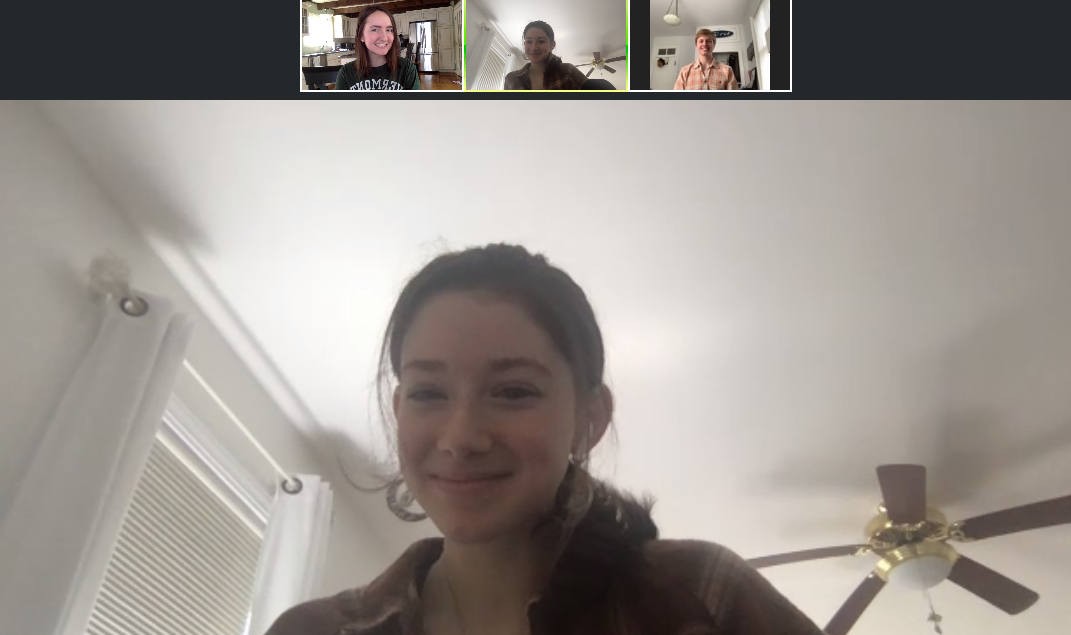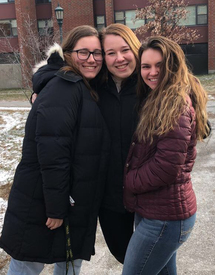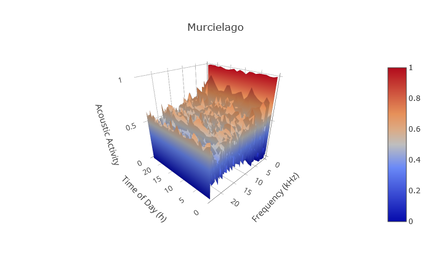 Top from left to right: Kaitly, Alyssa, and Aidan
Top from left to right: Kaitly, Alyssa, and Aidan When I first came to UVM, there were tons of acronyms. From CAS (College of Arts and Sciences) to L&L (Living/Learning) to BB (Blackboard) to WE (Wellness Environment) there is no shortage of them but the acronyms that have given me the most rewarding and unique opportunity are LASP and the LSS program. LASP, or the Liberal Arts Scholars Program, is an opportunity to become a part of an academic and living community that have similar academic interests. This aids in a student's ability to find study partners and means you're constantly around individuals who understand the work you are doing. The LSS or Life Science Scholars program focuses on those with enough passion to dive deep into the science field with small class sizes and research motivated peers.
My experience was slightly different from most traditional LASP LSS students' experiences as I did not live in L&L; the centrally located suite style dorm where you live with a mix of LASP students. Instead I chose to live in a different learning community to be with a requested roommate. Even though I did not live with the LASP community, I still created invaluable connections with the other LSS students. Aside from having built in friends and study partners, our class became a familiar group and supportive network. For the introductory biology sequences, the LSS group had the privilege to study directly under the program coordinator Laura May-Collado, inside a small class limited to 48 students. This is a stark difference from the 200 person lectures that are standard for a large university. The relationship I built with Professor May-Collado over the biology sequence was extremely helpful during spring semester when the LSS were allowed to take her CURE course, a Course-based Undergraduate Research Experience. It offered me a first hand experience on what it is like to pursue research I was interested in, collaborate with others, and balance the other aspects of college. Our project focused on the effect of noise pollution on the health of marine communities. The vast library of data Professor May-Collado has amassed, allowed us to explore communities around Costa Rica. This gave us a lot of liberty to pursue any topic we were interested in and discover the answers for ourselves. The course provided an enriching, hands on learning opportunity to explore how research is conducted and conveyed . Even though my group was not able to present our findings in person due to the Spring 2020 semester shift to online learning, we were still able to share our work through an online conference and contribute to the larger UVM scientific community .
Although my experience in the LASP LSS program was untraditional, I highly value the experience and how it positively impacted my freshman year. This program presented a unique ability for students to become a part of a great community, build closer relationships with their professors, and learn what it really means to be in the scientific community doing research. Finally, a special thank you to Professor May-Collado for creating this opportunity and I wish the future LSS programs even more success.
My experience was slightly different from most traditional LASP LSS students' experiences as I did not live in L&L; the centrally located suite style dorm where you live with a mix of LASP students. Instead I chose to live in a different learning community to be with a requested roommate. Even though I did not live with the LASP community, I still created invaluable connections with the other LSS students. Aside from having built in friends and study partners, our class became a familiar group and supportive network. For the introductory biology sequences, the LSS group had the privilege to study directly under the program coordinator Laura May-Collado, inside a small class limited to 48 students. This is a stark difference from the 200 person lectures that are standard for a large university. The relationship I built with Professor May-Collado over the biology sequence was extremely helpful during spring semester when the LSS were allowed to take her CURE course, a Course-based Undergraduate Research Experience. It offered me a first hand experience on what it is like to pursue research I was interested in, collaborate with others, and balance the other aspects of college. Our project focused on the effect of noise pollution on the health of marine communities. The vast library of data Professor May-Collado has amassed, allowed us to explore communities around Costa Rica. This gave us a lot of liberty to pursue any topic we were interested in and discover the answers for ourselves. The course provided an enriching, hands on learning opportunity to explore how research is conducted and conveyed . Even though my group was not able to present our findings in person due to the Spring 2020 semester shift to online learning, we were still able to share our work through an online conference and contribute to the larger UVM scientific community .
Although my experience in the LASP LSS program was untraditional, I highly value the experience and how it positively impacted my freshman year. This program presented a unique ability for students to become a part of a great community, build closer relationships with their professors, and learn what it really means to be in the scientific community doing research. Finally, a special thank you to Professor May-Collado for creating this opportunity and I wish the future LSS programs even more success.



 RSS Feed
RSS Feed